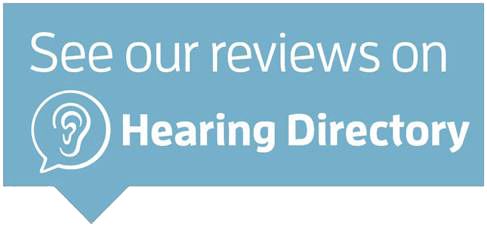A Guide To Hearing Aids
What is the biggest mistake people make in starting their search for hearing aids?
The best advice I can offer anyone is to remember that hearing care is health care, not a retail transaction. Recent marketing tactics we’ve seen may lead you to believe that the solution is just buying the latest, greatest or cheapest hearing aid. If you think you are searching for the best hearing aid or the best price, you are setting yourself up for failure. A hearing aid alone is not enough!
What do you mean by ‘not enough’? What more is there?
The best hearing aids in the world do not make up for a poor prescription. The most important factor to increasing your success with hearing aids is to find a provider that follows “best practices.” Best practices are a number of strategies and procedures that are shown through research to increase the likelihood of you succeeding with hearing aids.
What are the “best practices” I should be looking for?
There are many, but the single most important best practice that should happen and doesn’t happen enough is Real Ear Measurements (REMs). Most recent research tells us that REMs are not performed in 60-70% of hearing aid fittings in North America. It should be performed in every single hearing aid fitting.
So what are Real Ear Measurements (REMs) and why are they important?
This is essentially the hearing test with the hearing aids in. REMs are the only way we have to accurately measure what the hearing aid is doing while it is in your ear. A hearing aid has a prescription in it, similar to a lens in your glasses. It is a complex math equation, but it is critical to measure the math to make sure it is accurate for you and your hearing loss. Without it, the hearing aid fitting is a guess at best. It is a scary thought to think that over 60% of hearing aid fittings are based on a guess, when we know there is a better way. Several times every week, I am the second or third opinion for someone who purchased hearing aids elsewhere. Almost every time, when I perform REMs on the hearing aids they come in with, the prescription is not correct and nowhere near what it should be.
Why wouldn’t my provider perform these measurements?
In my opinion, this goes back to the first question. Let’s not lose sight of the fact that hearing care is health care. Unfortunately, hearing aids are being dragged into a retail realm where the focus is to sell a hearing aid rather than treat a hearing loss. If the goal is to sell a hearing aid, particularly if the goal is to be cheap, then corners will be cut. Unfortunately, it is often this one. But it is worth stating again….fitting a hearing aid without REMs is guesswork. You deserve better.
How can I ensure that I am getting the best treatment?
Know that who you see is more important than what you get. A $1,000,000 hearing aid is still useless if it isn’t prescribed properly. Know the difference between an Audiologist and a Hearing Aid Practitioner, but make sure whoever you choose uses best practices and Real Ear Measurements. Understand that hearing treatment is a rehabilitative process and will require multiple visits over a couple of months as well as ongoing care. Know who owns the clinic you choose and what their motivation is for you (selling a hearing aid or treating hearing loss).
I am occasionally asked by family who live in other provinces if I can “sell” them a hearing aid to save them money
. I understand that hearing aids are an expensive proposition, but I have refused every time and referred them to excellent colleagues. My explanation is always the same. I tell them, “Who you see will make a bigger difference than what you get.” My family will need follow up and aftercare that I can’t deliver when they don’t live in Alberta. As a result, even though my own mother wears hearing aids, I am not her Audiologist.
We should never lose sight of the fact that hearing aids fall squarely under health care but it can be a confusing experience, with a lot to lose. It may be worthwhile to consider a few tips in finding the right professional.
Beware of misleading advertising.
I saw a TV ad the other day from a major entity in the world of hearing aids that implied their hearing aids could “erase” background noise and only let you hear speech. There is not a hearing aid on the planet, for any amount of money, that can do that the way they suggest. If they could, we would all wear them like we wear sunglasses, even when our vision is normal. Likewise with digital advertising, if you have any internet presence or social media, you are being targeted with ads based on your age, search history, etc. Be wary of what they are telling you. There is no single hearing aid that has “taken over the (Red Deer or Olds) market.” That is a digital manipulation. Be skeptical.
Am I being helped or am I being sold?
The experience should feel like health care, not a retail transaction. The conversation should be about treatment outcomes (speech understanding) before gadgetry and smart phones. There should be a plan to achieve this that includes best practices and real ear measurements
What is being recommended?
There are about 6 major global hearing aid manufacturers. It is in your best interest to use a technology developed by a major manufacturer to ensure cutting edge research as well as reliability. These have to pass testing with Health Canada to qualify as a medical device. They are therefore exempt from GST and can be claimed as a medical expense on your taxes
Can anyone adjust my hearing aid?
You have the right to choose the professional you work with. But what happens if you lose faith in your professional or if you move cities?
Sometimes, the devices are “locked” and can only be adjusted or changed by the company that originally dispensed the devices. This restricts your choice of health care provider. Make sure you get “open platform” devices that can be programmed by any Audiologist or hearing care provider anywhere you may be.
What is the plan for after care?
You absolutely will need aftercare, support and counseling about your hearing and hearing aids.
Do I have time to make my decision?
You should have no less than one month to try the hearing aids with an option to return them if they don’t meet your expectations. You should not sign anything that obligates you before that trial period is completed. Any suggestion that “you’ll get used to it” is not a legitimate reason to sign something before you are happy with the results. Health care regulation ensures minimum competence. But maybe we should be looking for excellent, not just competent. You should be comfortable with the relationship and know that professional is committed to your improved communication. Don’t be afraid to interview your health care providers and make the right decision for you.
Red Deer Location
Creekside Professional Centre
104-4320 50 Ave
Red Deer, Alberta
T4N 3Z6
Menu
All Rights Reserved | HearWell | Privacy Policy | Hearing Directory


